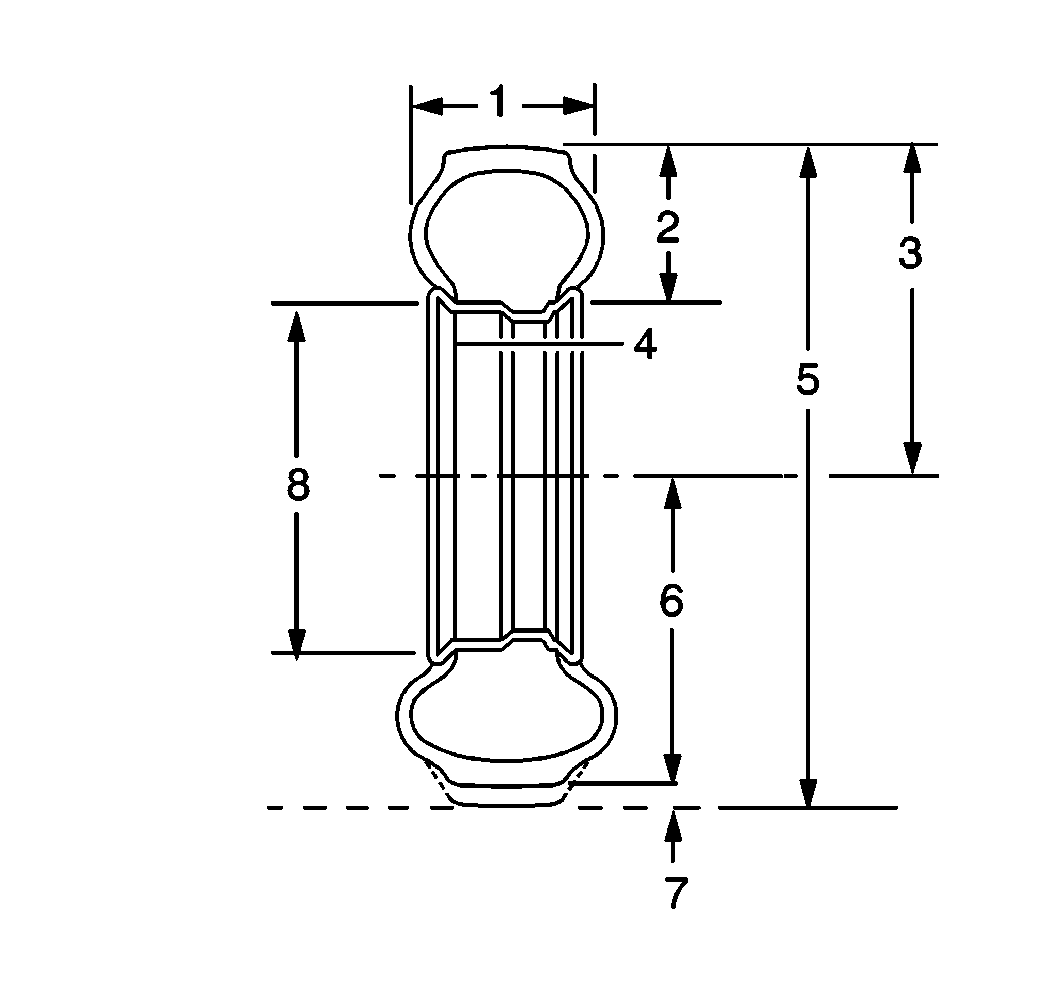For 1990-2009 cars only

Overall Diameter (5): Overall diameter is the diameter of the tire measured from the opposite outer tread surfaces, without carrying a load.
Free Radius (3): The free radius is one-half of the overall diameter.
Section Height (2): Section height is the distance from the rim seat (4) to the outer tread surface of the tire without carrying a load.
Section Width (1): Section width is the distance between the outside of the sidewalls of the inflated tire.
Loaded Radius (6): Loaded radius is the distance from the wheel axle centerline to the supporting surface under a tire, properly inflated for its load.
Deflection (7): The deflection of a tire is the free radius (3) minus the loaded radius (6).
Revolutions Per Mile: Revolutions per mile is the measured number of revolutions for a tire traveling one mile. This measurement can vary with load inflation.
Loads Per Axle and Inflation Pressures: The carrying capacity of each tire size is determined by various inflation pressures for a single application (two tires) axle load and for a dual application (four tires) axle load.
Wear Bars: Truck tires contain wear bars in the grooves of the tire tread that show when only 1.6 mm (0.0625 in) or less of tread is remaining. When the wear bars show, replace the tires. The tires on the front axles must have at least 3.2 mm (0.13 in) of tread depth.
Load Range/Ply Rating: Load range is a letter that corresponds to the numerical ply rating. Refer to Load Range/Ply Rating Description .
